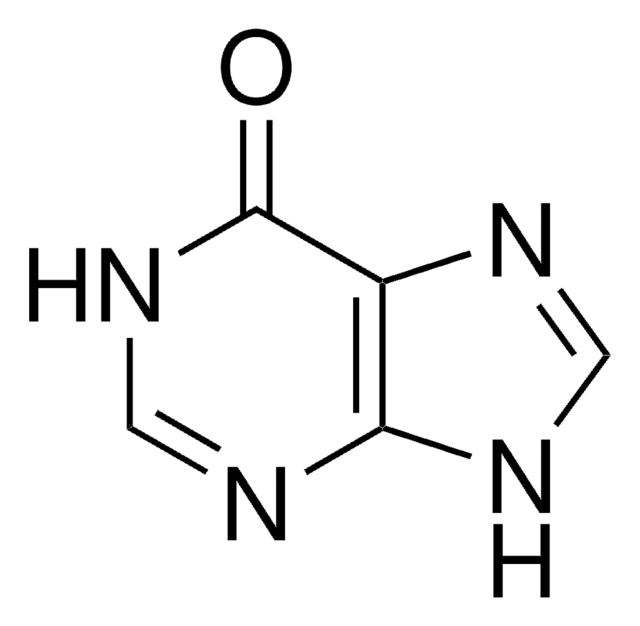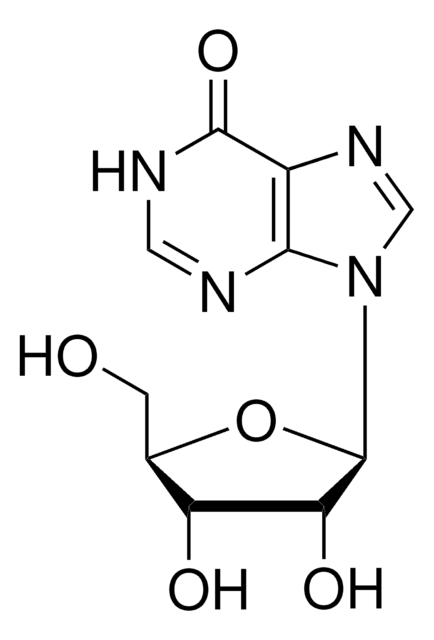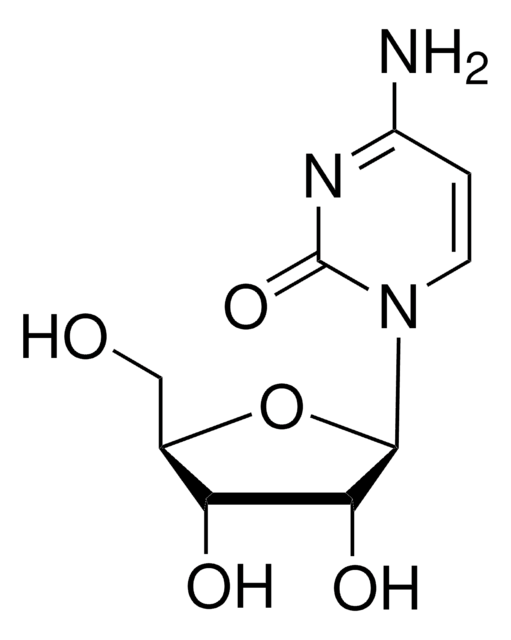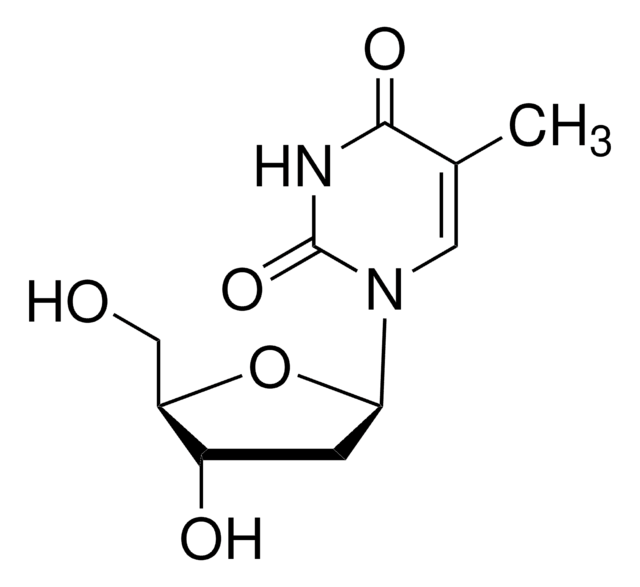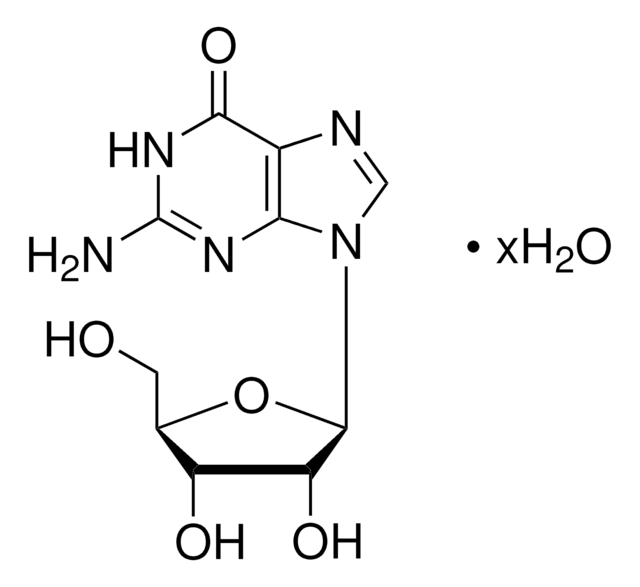V900452
Hypoxanthine
Vetec™, reagent grade, 98%
Sinonimo/i:
6-Hydroxypurine
Autenticatiper visualizzare i prezzi riservati alla tua organizzazione & contrattuali
About This Item
Formula empirica (notazione di Hill):
C5H4N4O
Numero CAS:
Peso molecolare:
136.11
Beilstein:
5811
Numero CE:
Numero MDL:
Codice UNSPSC:
41106305
ID PubChem:
Prodotti consigliati
Grado
reagent grade
Nome Commerciale
Vetec™
Saggio
98%
Stato
powder
Punto di fusione
>300 °C (lit.)
Solubilità
formic acid: water (2:1): 50 mg/mL, clear to slightly hazy
Stringa SMILE
O=C1NC=Nc2nc[nH]c12
InChI
1S/C5H4N4O/c10-5-3-4(7-1-6-3)8-2-9-5/h1-2H,(H2,6,7,8,9,10)
FDGQSTZJBFJUBT-UHFFFAOYSA-N
Cerchi prodotti simili? Visita Guida al confronto tra prodotti
Applicazioni
Hypoxanthine is a nutrient additive for a variety of cell culture applications involving bacterial, parasite (Plasmodium falciparum) and animal cells. Hypoxanthine is a component of selection media used in hybridoma technologies.
Note legali
Vetec is a trademark of Merck KGaA, Darmstadt, Germany
Codice della classe di stoccaggio
11 - Combustible Solids
Classe di pericolosità dell'acqua (WGK)
WGK 3
Punto d’infiammabilità (°F)
Not applicable
Punto d’infiammabilità (°C)
Not applicable
Scegli una delle versioni più recenti:
Possiedi già questo prodotto?
I documenti relativi ai prodotti acquistati recentemente sono disponibili nell’Archivio dei documenti.
Chien-Wei Hou et al.
The American journal of Chinese medicine, 40(5), 979-991 (2012-08-30)
Hyperuricemia causes gouty arthritis, kidney disease, heart disease, and other diseases. Xanthine oxidase (XOD) and urate transporters play important roles in urate homeostasis. Numerous plants have been identified as XOD inhibitors. Longan seeds are known to contain high levels of
Abdulazeez T Lawal et al.
Food chemistry, 135(4), 2982-2987 (2012-09-18)
A potentiometric enzyme electrode for detection of hypoxanthine (Hx) in fish meat is described. The sensor was developed by entrapment of xanthine oxidase (XOD) and ferrocene carboxylic acid (Fc) into polypyrrole (PPy) film during galvanostatic polymerisation film formation. The responses
Palraj Kalimuthu et al.
The journal of physical chemistry. B, 116(38), 11600-11607 (2012-09-01)
We report the mediated electrocatalytic voltammetry of the molybdoenzyme xanthine dehydrogenase (XDH) from Rhodobacter capsulatus at a thiol-modified Au electrode. The 2-electron acceptor N-methylphenazinium methanesulfonate (phenazine methosulfate, PMS) is an effective artificial electron transfer partner for XDH instead of its
Tomáš Tichý et al.
European journal of medicinal chemistry, 55, 307-314 (2012-08-04)
Hexadecyloxypropyl esters of acyclic nucleoside phosphonates containing guanine (G) or hypoxanthine (Hx) and a (S)-[3-hydroxy-2-(phosphonomethoxy)propyl] [(S)-HPMP] or 2-(2-phosphonoethoxy)ethyl (PEE) acyclic moiety have been prepared. The activity of the prodrugs was evaluated in vitro against different virus families. Whereas ester derivatives of
Chia-Tung Wu et al.
Cardiovascular research, 102(3), 487-496 (2014-03-07)
Fibroblasts, which play an important role in cardiac function/dysfunction, including arrhythmogenesis, have voltage-dependent (Kv) currents of unknown importance. Here, we assessed the differential expression of Kv currents between atrial and ventricular fibroblasts from control dogs and dogs with an atrial
Il team dei nostri ricercatori vanta grande esperienza in tutte le aree della ricerca quali Life Science, scienza dei materiali, sintesi chimica, cromatografia, discipline analitiche, ecc..
Contatta l'Assistenza Tecnica.